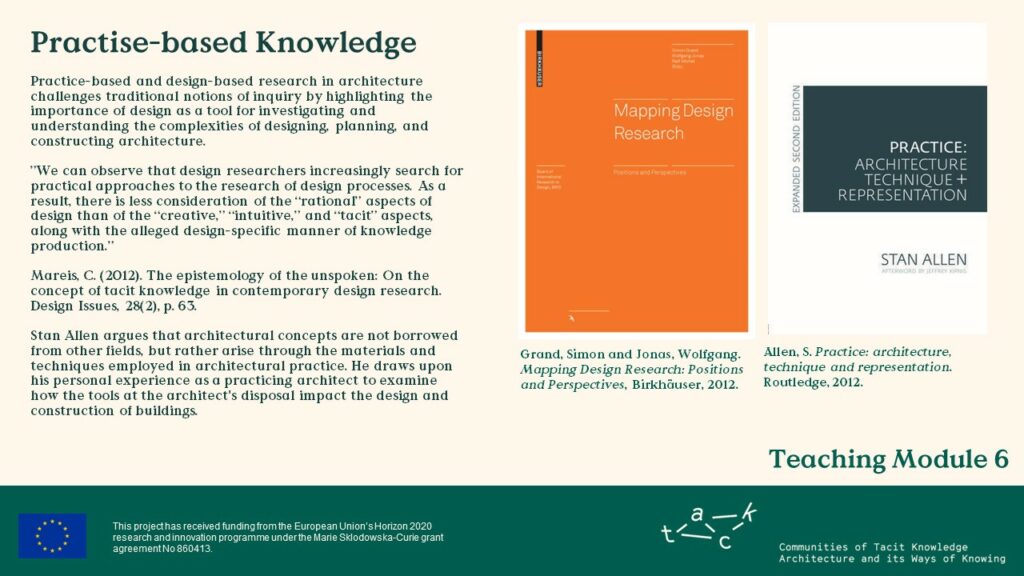Return to archive
title
TACK Talks #1: De Smet Vermeulen
guest speaker
Paul Vermeulen De Smet Vermeulen architecten
hosted by
Tom Avermaete
questions by
Jhono Bennett
Design projects commonly emerge from collaborations between designers, makers (builders, crafts(wo)men etc.), clients and a variety of experts, including social scientists, commercial, economic or technical advisors, critics and heritage consultants. This extended design team is thus composed of individuals with various backgrounds, different professional assumptions and varying perspectives of expertise. Architecture operates at the intersection of knowledge domains (arts, humanities, social sciences, applied technology) and has the capacity to create new solutions and perspectives based on its inherently synergetic knowledge production. So, architectural designs are the result of complex and occasionally conflicting sets of requirements that can only be reconciled through processes of negotiation between different disciplines and different fields of knowledge. These negotiations imply forms of synergetic thinking, which often rely on implicit common understandings, or tacit knowledge.
Tacit knowledge may be embedded in the relations between people, and is specific to particular historical developments and traditions. Tacit knowledge often results from the personal experience of making and thinking and therefore connects intellectual and practical work. It produces knowledge that is embedded in a community. As tacit knowledge is an essential element of the heuristic methods of knowledge production in the field of design it also contains a significant potential of absorbing and responding to change. Tacit knowledge offers designers highly relevant instruments for dealing with constantly fluctuating conditions and a set of complex and apparently contradictory requirements.
From Thursday, May 21st 2020 until Thursday, July 23rd 2020, the TACK network organized a series of nine online TACK talks focused on the theme ‘How do we Know’. In this series nine architectural firms from Sweden, The Netherlands, Germany, Belgium, Britain and Austria (those who are partners in the TACK network) revealed how their work is the result of examinations of knowledge and how tacit knowledge is part of the conversation and the communication with others.




